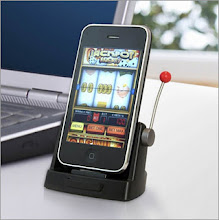If you walk around New York City staring open-mouthed at the tall buildings, the low-lifes mark you for a hayseed right away. Pickpockets try for your wallet, sidewalk vendors offer great deals on "genuine" Rolexes… you might even get an opportunity to buy the Brooklyn Bridge! Even if you're smart enough not to get taken, you're better off keeping a low profile. The same is true in the online world. There are some things you should just never, ever do. For example:
Never Put Your Email Address in a Comment. Don't put your email address in comments on blog posts. Don't put it in Facebook comments. You may have set Facebook for privacy, but your friends haven't. Don't include the address in plain text on your own Web site; use an image. Spammers send Web crawlers to harvest exposed email addresses and fill your Inbox with ads for Canadian drugs and Russian girls.
Never Respond to Spam. Angry at the spammers? Don't fire off an irate missive. Don't reply with "REMOVE" in the subject. All this does is verify for them that your address is owned by a person who actively uses it. That makes it much more valuable when they sell their list to other spammers.
Never Click Links from Strangers. Got an unsolicited email promising you a free iPad, a vacation in Belize, or something else tempting? Resist temptation! Clicking that link won't get you the prize, but it might well recruit your computer into the latest botnet army. Sure, your antivirus or security suite will probably keep you safe. So in the best case, you get… nothing.
Never Share Your Password. OK, this may sound too simple, too obvious, yet I've seen people do it. "Hey, can I use your [fill in the blank] account?" Sure, it's a good friend asking, but will this person safeguard your security the way you would yourself? Maybe you don't really care about that particular account, but are you sure you haven't used that same password on one, two, or twenty other sites? Sharing is good, in general, but not password sharing.
Never Do Your Banking at the Coffeehouse. Banking over the public WiFi at a coffee house or Internet café is a seriously bad idea. These networks can be ridiculously insecure. The guy at the next table could be using Firesheep to capture your online session. The sinister café owner could be tracking every packet that passes through the network. Save your online financial transactions for times when you can connect to a secure network.
















0 comments:
Post a Comment